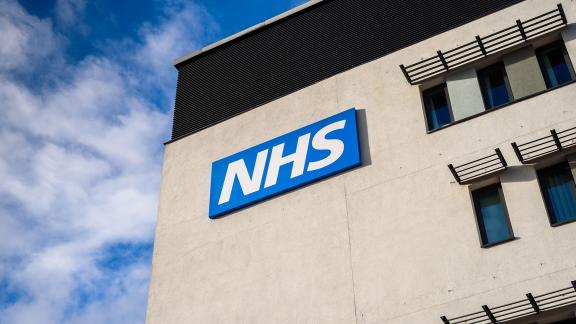NHS Confederation responds to NHS pay announcements

Responding to the government's acceptance of the independent Pay Review Bodies (NHS Pay Review Body and Doctors’ and Dentists’ Review Body) recommendation of an above current inflation rate pay increase for NHS staff and junior doctors pay offer Matthew Taylor, chief executive of the NHS Confederation, said:
“Health leaders will welcome the confirmation from the government that those staff working so hard across the health service will benefit from an above inflation pay rise. NHS staff work tirelessly day in day out for patients and are the lifeblood of the health service so this decision should be greeted with renewed optimism.
“However, with the Chancellor confirming that at least £3bn out of the total £9bn the total cost for accepting all of the pay review body recommendations will be absorbed by government departments, health leaders are worried that they may face impossible choices if they are potentially asked to make cuts themselves to bridge this gap.
“It is crucial that the pay award is funded in full, as the NHS continues to work hard at recruiting and retaining staff and driving down waiting lists against the backdrop of an already very tight financial position, including managing a reported funding gap of £2.2bn this year.
“NHS leaders will be heartened to hear that the government has made such significant progress in its talks with the BMA that they have reached agreement on a pay offer that can now be put to junior doctors.
“Two long years of industrial action has taken a real toll on the health service, not least on patients with over 1.5m operation having to be cancelled after 44 days of strikes by junior doctors since they first took industrial action early last year, at an estimated cost of over £3bn.
“We will now wait with bated breath in the hope that time is called on this dispute, patients no longer continue bear the brunt of the fall out and so the NHS can carry on working to drive down waiting times and improve performance and productivity across the health service.
“It is important to note however, that the more generous offers for both junior doctors and their senior consultant colleagues over the last two years will not have gone unnoticed by NHS Agenda for Change staff. To that end, NHS leaders would support the recommendation by the pay review bodies of a wider future review of NHS pay and how it is set.”
Responding to review of the New Hospital Programme, Matthew Taylor chief executive of the NHS Confederation added:
"Health leaders understand that pausing this programme could provide the opportunity to review the NHS’s broader capital needs, given the considerable maintenance backlog across the NHS estate. Nine in ten NHS leaders say that a lack of capital funding in recent years is undermining their ability to tackle the elective backlog and we also know that capital investment is key to improving productivity.
"Beyond the 40 hospitals selected for the programme by the previous government, many others have significant issues and services in primary care and community settings are also in desperate need of investment for their buildings and equipment. Our members want to see a wider strategy on NHS capital, as recommended last year by the Hewitt Review.
"There is already an estimated £3bn funding gap between the activity the NHS is committed to deliver this year and the funding they have been allocated to deliver it. In hospitals and other services where there are collapsing rooves, broken equipment and outdated facilities, with each day that passes without a longer-term fix more funding is having to be used to provide short-term solutions to allow for the provision of patient care to continue.
"For the government to be able to deliver on their key pledge to drive down waiting lists and ensure the NHS is fit for the future, the pause to the delivery of the New Hospitals Programme must be as short as possible and NHS leaders need clarity about timelines."
About us
We are the membership organisation that brings together, supports and speaks for the whole healthcare system in England, Wales and Northern Ireland. The members we represent employ 1.5 million staff, care for more than 1 million patients a day and control £150 billion of public expenditure. We promote collaboration and partnership working as the key to improving population health, delivering high-quality care and reducing health inequalities.



